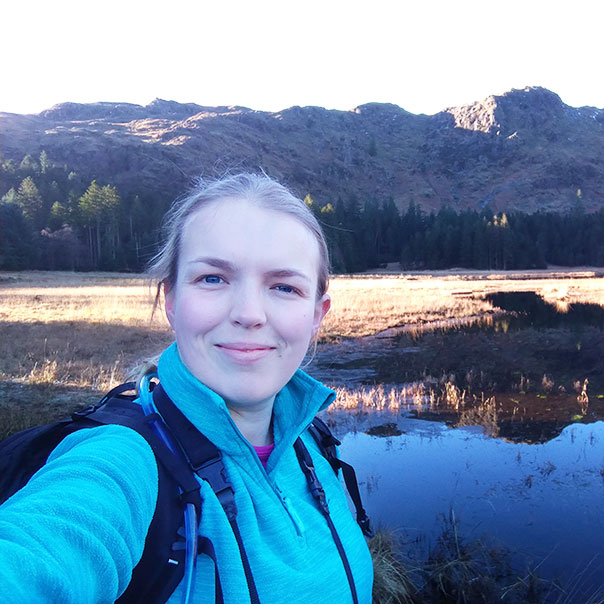Leanne Tough
GIS Research Officer, Wetland Landscapes & Processes

About me
Everything to do with wildlife and nature has always been my passion. From small beginnings on a dairy farm and volunteering for various wildlife charities, I completed a Bachelors degree in Ecology and Conservation at Lancaster University and then a Masters of Research in Ecology, Evolution and Conservation at Imperial College London. During my Masters I focussed on water, studying freshwater invertebrates and then wetlands in Madagascar. I volunteered for WWT Welney and Martin Mere whilst at university, from swan monitoring to family engagement.
After university I worked for the Ribble Rivers Trust, firstly as a GIS and Projects Trainee and then as a Projects and Citizen Science Coordinator. I worked on a range of projects from managing woodland creation and farm improvements to kick-starting our citizen science program. During these roles I utilised a range of GIS software to better display data and improve data collection in the field.
My role
I started as a Research Officer in 2022 specialising in all things GIS. I am supporting a variety of programs and projects from Blue Recovery, Roadmap to 100,000 Hectares, Waterscapes and on some of WWT’s International projects. I will also provide in-house GIS support and lead on staff training.
Experience and interests
- GIS: QGIS, ArcGIS Pro and the plethora of Esri apps and data visualisation tools
- R Studio: statistics and data visualisation
- Ecological monitoring: bird and freshwater invertebrate surveys, bird handling and nest monitoring
- Scientific method design and data analysis
- Volunteer management
Publications
Tough, L.F., Duncan, C., Hansford, J. and Bamford, A. (2020) Time series analysis of Madagascar’s degraded wetlands to identify suitable habitat for the Critically Endangered Madagascar pochard (Aythya innotata). Imperial College London MRes Ecology, Evolution and Conservation thesis.
Tough, L.F., Pecorelli J. and Böhm, M. (2020) London trends in freshwater macroinvertebrate communities between 1990 and 2019 in response to water quality and flow. Imperial College London MRes Ecology, Evolution and Conservation thesis.
Return to meet the team